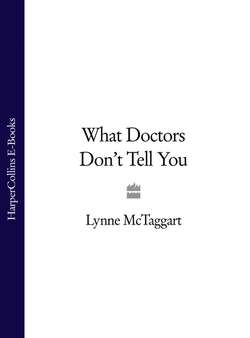Читать книгу What Doctors Don’t Tell You - Lynne McTaggart, Lynne McTaggart - Страница 34
AMNIOCENTESIS
ОглавлениеAmniocentesis is by far the preferred test for Down’s syndrome and other genetic abnormalities, and more than 30,000 amniocentesis procedures are carried out in the UK each year The procedure involves having a needle (guided by ultrasound) inserted into your abdomen and uterus and drawing out amniotic fluid. These cells are then cultured for two or three weeks and the chromosomes of the cells examined, which explains the three-week delay between the test and its results.
The risks of miscarriage are assumed to be 1 to 1.5 per 100 pregnancies, largely from damage caused by the needle or the possibility of introducing infections to the womb. In 1978, the Medical Research Council also reported a 3 per cent increase in neonatal respiratory distress and a 2.4 increase in congenital dislocations of the hip and club feet.
Because of these problems with a pregnancy that is well along, doctors reasoned that it might be safer to get in there early, while the baby is still tiny. However, far from being safer, early amniocentesis has proved to be far more dangerous. Those given the earlier procedure have nearly a 2 per cent greater incidence of miscarriage and more than a 1 per cent increase in club foot.67
Whether the test is given early or late, the high miscarriage rate in women given amniocentesis is worth keeping in mind if you are a woman who has delayed childbearing until you are over 35 and now are carrying a much-wanted baby.
Because of the spectre of a late-term abortion should the test prove positive, many women are opting for early amniocentesis. However, the latest information is that early amniocentesis greatly increases your risk of miscarriage. It is also slightly more likely to cause cases of club foot than does CVS, according to research at the King’s College Medical School in London.68
In Holland, scientists considered the test so dangerous that they abandoned their study of it, considering it unethical to continue their trials into the procedure. Before this, Dutch researchers had found that eight women had miscarried after having an early amniocentesis – a number similar to the losses noted in another trial of 120 women given the test. Dr F.Vandenbussche and his colleagues from the Leiden University Hospital have warned other doctors that: ‘There certainly seems no justification for the continuing unqualified advocacy of early amniocentesis on the basis of beliefs and uncontrolled observations.’69 Another study showed that children whose mothers undergo amniocentesis reported ‘significantly higher’ levels of haemolytic diseases (related to red blood cell levels) than children who didn’t have the test.70
There are also plenty of false-positives, even with this supposedly highly accurate test (there were more false results with amniocentesis than CVS in the MRC study). Anyone doubting that it can’t happen to them should read the letter sent to the Spectator congratulating Dominic Lawson, after his bold refusal to have amniocentesis and even bolder defence of the joys of having the resulting Down’s baby. ‘You have a human being in your hands,’ wrote the letter-writer, ‘and that is what really matters.’ He goes on:
This time last year my wife was pregnant, at the age of 42. The hospital called us to explain the possibility of a Down’s syndrome baby at her age. Foolishly and arrogantly, we agreed to have the test. We were told that the risk of a resulting miscarriage was 1 in 200, which I considered remote.
The long and short of it all is that we lost a healthy baby, and on 20 September 1994 at 10.45 I had the task of carrying the tiny coffin for burial. It is a day I will never forget, and I will forever blame myself for the decision to have the test.
Please be pleased with yourself and have no regrets. Today we wish we had a Down’s syndrome baby to care for and love. However, we are grateful that we have two surviving children. There must be many others who made the mistake of having the test, lost the baby and have nothing now but regrets. 71
